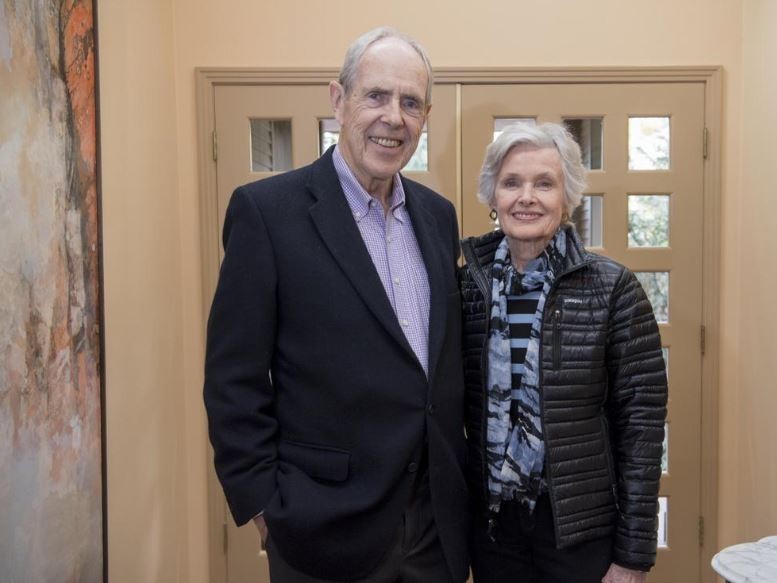Guest Commentary by Ed Clark: Clack’s vision connects U District
Thursday, January 18, 2018

(As reported in the Journal of Business by Ed Clark - photo at left of Dave and Mari Clack, courtesy The Inlander)
“World’s Fair ’74!” The exciting musical fanfare spread across the nation on radio and television, inviting the country to Expo ’74, in Spokane, Washington, the smallest city ever to host a World’s Fair. The environmentally themed fair, which ran from May through November of 1974, was Spokane’s finest hour, with more than 5 million people visiting over those six months.
When it was over, Spokane had a beautiful downtown park, an Opera House, an IMAX theatre, and a convention center. There were great hopes for further urban renewal that would transform the city into a bright future. But, things did not go as planned.
The excitement of Expo ’74 faded in the following years due to a global economic recession in the late 1970s and early 1980s. In Spokane, a lack of local government leadership, high unemployment, and a sluggish real estate market slowed growth. By mid-decade, the iconic Davenport Hotel was shuttered, the legendary Crescent department store was being sold and launched on the path to eventual closure. The hoped-for resurgence of downtown Spokane did not happen, and business leaders looked for a solution. It came as Momentum ’87.
After a year of planning, Momentum ’87 was formed by five local business leaders: David Clack, William H. Cowles III, Michael K. Murphy, Paul A. Redmond, and Lewis G. Zirkle. In January 1987, Momentum brought together over 100 business, political, and other civic leaders, sequestered for three days at the now Mirabeau Park Hotel.
Under the direction of John Arnold, an outside “decision-process” expert, the group agreed upon a set of 10 economic initiatives, or “driving forces,” upon which the community could reach extremely broad consensus. The primary goal of the 10 initiatives, collectively, was to increase the local job-creation rate and to close the gap between state and national income by creating not only more, but also better-paying jobs.
One of those driving forces, proposed and championed by Dave Clack, was the need for a “research program, institute, or university,” because, at the time, Spokane was arguably the largest metro area in the U.S. without a major research company or university within its bounds.
This initiative proposed and created a cooperative research center, named Spokane Intercollegiate Research and Technology Institute, which opened in 1994, the first building in the area of the present University District. SIRTI led to the vision and reality of today’s campus—including the medical school, nursing, and pharmacy schools—and the revitalization of both sides of the Spokane River in the east Trent-east Sprague area.
Momentum’s vision in establishing SIRTI was a conceptual bridge to the current University District, and the new bridge currently under construction is the physical embodiment and symbol of the vision and leadership of David Clack and his Momentum co-chairs 31 years ago. By linking research and education on the campus to entrepreneurial activity to the south, the bridge represents the vision of Clack, in particular, to link ideas, people, and capital to produce community prosperity.
It would be appropriate, therefore, to name the bridge in honor of David Clack.
Spokane native Ed Clark is the owner of The Clark Co., an advertising, marketing, and public relations consulting firm.